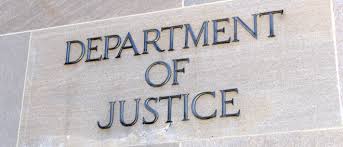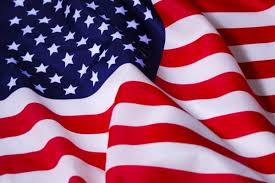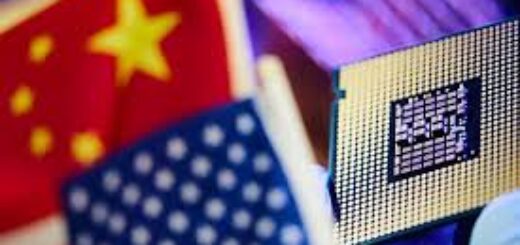DOJ’s Coordinated Resolution with Unicat Resolves OFAC, BIS and CBP Violations (Part II of III)

DOJ’s Unicat resolution is a perfect example of the new trade enforcement reality under the Trump Administration. DOJ spearheaded a global resolution of sanctions, customs and export controls violations, while declining to prosecute the parent company that voluntarily disclosed the violations quickly after acquiring Catalyst.
As detailed in court documents and in DOJ’s agreements with White Deer and Unicat, from approximately 2014 through 2021, Mani Erfan, Unicat’s former CEO, conspired with others, including at least one other Unicat employee, to cause Unicat to submit bids and make sales to customers in Iran, Venezuela, Syria, and Cuba in violation of U.S. economic sanctions. In total, Erfan caused Unicat to make a total of 23 unlawful sales of chemical catalysts used in oil refining and steel production to customers in Iran, Venezuela, and Cuba. Some of the sales were effected through exports of catalysts from the United States and further violated U.S. export control laws.
To further the conspiracy, the conspirators made false statements in export documents and financial records about the true identities and locations of Unicat’s customers and falsely assured some Unicat employees that the company’s business with customers subject to U.S. economic sanctions was lawful. Unicat obtained approximately $3.33 million in revenue from its unlawful sales.

Erfan and Unicat employees additionally falsified invoices to reduce the tariffs assessed on catalysts that Unicat imported from China. By undervaluing these imports, Unicat caused a loss of revenue of approximately $1.66 million in duties, taxes, and fees. Further, during negotiations to sell Unicat to White Deer, Unicat’s prior owners provided representations and warranties to White Deer attesting to Unicat’s compliance with U.S. sanctions and export control laws.
The scheme came to light in June 2021, in the midst of the COVID-19 pandemic, after White Deer acquired Unicat and a second company based in the United Kingdom, and Unicat’s new CEO was able to travel to the United States to visit Unicat and begin to integrate the operations of the company. During his visit, the new CEO learned that Unicat had a pending transaction with an Iranian customer and immediately ordered the deal’s cancellation.
Over the next month, White Deer and Unicat’s new CEO retained counsel to investigate, and learned that Unicat had engaged in a series of transactions with counterparties subject to different U.S. sanctions programs. Before the investigation was complete, but after determining that Unicat employees had engaged in potentially criminal violations of U.S. sanctions laws, White Deer and Unicat’s new management submitted a voluntary self-disclosure to DOJ.
Unicat’s former CEO was aware of the fact that Iran was a sanctioned country and despite this awareness, entered into distributions agreements with a regional distributor operating in Dubai and Iran. Working through the Distributor, its Dutch affiliate and the China Office, the Former CEO regularly organized and directed sales to Iran and continued to instruct others, including subordinate employees, partners, and affiliates, to facilitate the transactions.

For example, in correspondence related to a July 2018 purchase order, a Unicat supply chain manager shared information that described U.S. sanctions against Iran with the Former CEO and asked how to proceed. The supply chain manager stated that “sending from the US [sic] will not be an option.” CEO Efran advised that Unicat’s Dutch affiliate could handle the order and that the products could be shipped to Iran from China. Subsequently, Unicat employees fulfilled the order through its Dutch affiliate.
In addition to catalyst sales, Unicat provided consultation on the use of its catalyst products through email correspondence and on three separate occasions through on-site visits to Iran. Specifically, representatives and employees of the Dutch affiliate, on behalf of Unicat, visited Iran to provide expert technical assistance on items including start-up assistance and supervision and guidance on the loading of its catalysts into refinery reactors in Iran. In attempt to conceal this conduct, payment for these on-site services was conducted in cash.
By late 2018, Unicat’s former Board of Directors (BOD) and other senior management were aware that the company was conducting business with Iran yet failed to intervene to stop the sales or take corrective action.
On December 4, 2018, one of Unicat’s former owners emailed an agenda “for the board of director meeting on December 11, 2018 at 10AM” to other board members including the Former CEO and Unicat’s Former Chief Financial Officer (CFO). One of the agenda items listed was “BOD: Discussed ongoing business in Iran and [h]ow that affects the company and how its [sic] being handled internally.”

Following this discussion, Unicat sales to Iran continued, while employees continued to conceal their dealings with Iran. For example, in January 2019, when discussing shipping logistics associated with Iranian customer orders, Unicat employees began referring to Iran as “I” in email communications. They also discussed who to share, or not share, shipping documents with since, according to the Unicat employees, “sanctions have been tougher now.”
Months later, in April 2019, a Unicat logistics manager informed another employee that “we are supposed to receive another [purchase order] from ‘I’” in correspondence discussing business in Iran. The very next month, in May 2019, a Unicat sales manager wrote to another employee that “[W]e should drop all these activities immediately. And please I suggest you don’t put the country name on any communication, especially not on email title or subject.” Unicat sales to Iran continued through February of 2021.
In May 2020, Unicat sold catalyst products to a Venezuelan company, Orinoco Iron S.C.S. (“Orinoco”). Orinoco, located in Puerto Ordaz, Venezuela, was at the time owned by the Government of Venezuela. Similar to its dealings with Iran, Unicat worked with the China Office to source catalyst products and arranged for shipment directly from China to Venezuela. However, for this transaction, the Former CEO, the China Office, and an individual working on behalf of Orinoco elected to use unrelated third-party entities to facilitate Unicat’s sale to Orinoco.















